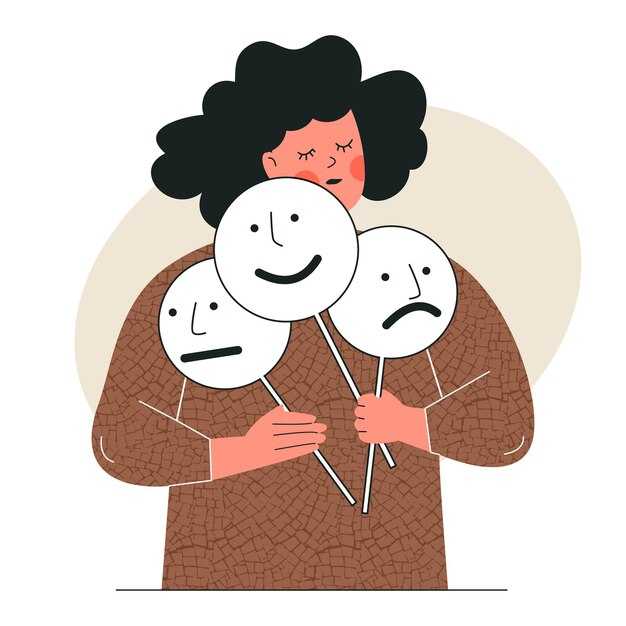Let’s be clear from the start: you cannot out-love someone who is avoidant. You can’t repair them for good, and you can’t embrace them so tightly that they stop retreating. What you can do, though, is learn how their inner script works and use that understanding to change the dynamic. An avoidant person doesn’t reject closeness outright — they want to regulate how close anyone gets. They long for connection, but only under conditions they feel in control of. The paradox is that what they flee from most is often what they secretly desire the most. If this lands on something true for you, don’t ignore it — this is written for people whose hearts ache with this exact dilemma. Avoidants don’t run from love; they run from need. That’s the blind spot most people miss. Offer them affection and they often move away. Give more and they give less. Then you find yourself asking, Why does it seem the more I love them, the more they vanish? The issue isn’t your love itself; it’s how overwhelming it appears to an avoidant. For them, love isn’t felt as a sanctuary — it’s felt as pressure. Love implies vulnerability, and vulnerability is precisely what their nervous system has learned to escape. When you rely on them emotionally, when you seek closeness, regularity, or depth, something inside flips on and whispers, “This is unsafe.” It’s not a personal indictment; it’s a pattern etched by earlier experience that equates intimacy with losing freedom or losing oneself. You might think that laying your heart bare will pull them nearer. Instead, the more you reveal, the more exposed they feel; the more you reach, the more they withdraw. Their retreat is rarely a judgement on you — it’s a survival reflex. The instant they detect emotional dependency, their barriers rise, because in their map of the world needing someone feels perilous. Dependence looks to them like a set-up for eventual abandonment or suffocation. This response is primal, not rational. Understand this: avoidants yearn for love like anyone else. They want closeness and even dream of deep intimacy — but only when it doesn’t threaten their control. When you arrive emotionally raw, asking for reassurance or trying to pull them in, they interpret vulnerability as pressure. They dread becoming responsible for your feelings, for your well-being, for your sense of security. That dread tells them to leave. Thus many partners of avoidants end up drained: they try to prove themselves, reassure constantly, remain available — and are met with retreat. You are giving precisely what the avoidant, on a deep level, is trying to avoid: emotional dependence. To them, love often translates into entrapment. When you say “I need you,” they hear “I own you.” When you say “I miss you,” they hear “You’re responsible for my mood.” It’s distorted perception, but it’s felt as real to them. Here’s the irony: what actually draws an avoidant in is not your relentless effort but your composure — not intensity but ease, not clinginess but independence. Present yourself as steady, self-sufficient, emotionally regulated — someone who values connection but doesn’t suffocate it — and that’s when they begin to let down their guard. Not because they suddenly trust love, but because they believe you won’t disappear into it. The shift happens when you stop trying to win them, stop proving your worth, stop staying at all costs. You step into a quieter power that signals, “I want you, but I don’t need you. My peace does not hinge on your presence.” That energy has a magnetic quality: it softens avoidance without confronting it head-on. You create room without courting distance. In that room they grow curious — about your calm, your refusal to chase — and you transform from someone they fear into someone they consider maybe, possibly, worth staying for. Avoidants, even if they don’t voice it, are longing for relief: relief from pressure, from being misunderstood, from the loop of closeness then retreat. That relief arrives when they meet someone who doesn’t require them to heal, perform, or prove anything— someone who is whole whether or not the avoidant shows up. So if you’re exhausted by rejection and futile pursuit, ask yourself: have I been loving in a way that reads as need? Even with the kindest motives, you might be triggering the fear you intend to soothe. Pull back and stand in your completeness. Let your presence declare calmly, “I am safe with you, but I do not depend on you.” When they eventually stop running, it won’t be because you coerced them — it will be because you embodied what they secretly imagine love could be: free. Don’t chase an avoidant; become the figure of their fantasy instead: unclaimed, serene, intriguingly opaque. That’s the secret most hearts refuse to accept: when someone withdraws, your impulse is to fix the gap, to close it, to prove your devotion. But with an avoidant, greater emotional availability often produces greater withdrawal. In their logic, intensity equals invasion and openness equals obligation; your earnest reaching feels like a threat to autonomy. So what’s the alternative? Stop chasing — not from spite or pride, but from clarity. Recognize that avoidants aren’t responding to your declarations; they’re reacting to the energy you project. Desperation repels; calmness attracts. Overexposure triggers flight; emotional containment fascinates. They want someone who doesn’t pry, who doesn’t insist on immediate answers, who tolerates uncertainty without imploding, who doesn’t demand vulnerability before it’s invited. Shift your behavior: offer them what they think they want — space, peace, freedom — but offer it from a stance of strength, not pain. Don’t vanish or play cold games. Remain present, but light. Become a warm mystery: grounded, self-assured, not leaning in too far, not begging constant validation. The moment your presence stops being contingent on their behavior, you become the person they didn’t realize they were searching for. Avoidants imagine a relationship that doesn’t suffocate them — someone who won’t crowd or chase, who won’t dissolve into them. When you show up whole, demonstrating that you are okay whether they approach or withdraw, their system eases. Their defenses lower not because you demanded it, but because you stopped threatening their emotional territory. This isn’t about feigning detachment; it’s about emotional self-containment — knowing yourself and not needing continuous closeness to feel secure. Become that unattached, calm, enigmatic version of yourself and you align with their secret fantasy. Be someone they can’t decode but also can’t just walk away from because you never pressured them to change. Let them come on their timetable — that is precisely what their nervous system craves because it both confuses and intrigues them. An avoidant notices when a partner doesn’t chase, doesn’t over-interpret silence, and doesn’t sprint to heal every fluctuation in mood. When you stop dissecting them and become a little inscrutable yourself, the dynamic shifts. You stop mirroring their fears and become an unfamiliar experience — unpredictable yet warm and confident. That unpredictability, coupled with steadiness, becomes intoxicating to someone accustomed to controlling the tempo of connection. This isn’t manipulation; it’s mastery over your own emotional landscape. When you move from reactive to responsive, you take your power back. You become someone who acts deliberately: slow in movement, sparing in words, generous in listening. You don’t explain every feeling or seek reassurance at each turn; you don’t fill silence with frantic activity. That calm, confident, untethered presence makes an avoidant lean in — not because you coerced them, but because you became something they couldn’t control or categorize. So don’t chase. Don’t try to force love into safety. Instead, love yourself into strength. When you do, the relationship dynamic shifts. In the avoidant world, the person who stands still — unflappable, unneedy — occupies the mental space others cannot. Your silence will convey what pleading never could. People rarely tell you this when you’re desperate for connection with someone who keeps slipping away: you might try talking, explaining, texting, unloading your heart at two in the morning, believing the perfect phrasing will finally land. With an avoidant, more words often produce less listening; more pursuit leads to more retreat. Trying to bridge the gap can widen it because desperation registers to them as pressure: an invitation to flee. They can’t absorb your logic; they feel your intensity, and that intensity triggers flight. What they don’t expect is your silence — and that absence unsettles them. Silence carries no pressure; it neither chases nor demands. It leaves a void where their own inner voice must speak. Begging gives them control and confirms your availability; silence removes that scaffolding and invites uncertainty. When you stop responding immediately, stop initiating, stop attempting fixes, the quiet lingers and echoes. Suddenly they wonder, Where did you go? Is this it? Have you finally moved on? That emotional disruption is one they rarely see coming. They expect anxiety and familiar patterns but not your stillness. Silence implies a change: perhaps you are reflecting, perhaps you are done, perhaps you finally recognized your own worth. That ambiguity is powerful. When you refuse to keep proving your value, when you no longer defend your emotions or chase their validation, you reclaim what matters most in these entanglements: your self-respect. Silence becomes intentional and sacred — not passive defeat but a statement: I will no longer bargain for the right to be treated with dignity because I already am deserving. That steady, grounded detachment unsettles avoidants. Not as punishment, but because you’ve stopped playing the role they’re used to. You’re no longer the ever-present safety net; you’ve become the unknown. People — including avoidants — are magnetically drawn to what they don’t understand. You cease being the reliable presence they take for granted and instead become a mirror that reflects the consequences of their distance. They don’t like the image they see. That’s when fear quietly arrives: the fear of losing someone who stopped centering them in their emotional universe. The paradox is clear: the moment you stop needing them, they begin to notice. Don’t underestimate the power of silence. It’s not weakness; it’s clarity. It says without words: I gave you everything, and now I’m stepping back to see how you respond. Sometimes silence speaks louder than all the hours spent explaining. This isn’t about manipulating the avoidant. It’s about mirroring their emotional tempo while remaining anchored in your own integrity. That’s the line between childish games and emotional savvy. When someone repeatedly distances as things draw near, your instinct might be to double down: push harder, bare more, demand certainty. They’ll pull even further. It feels personal, but it’s not — they’re fleeing the discomfort of being truly seen and of being emotionally required. So alter the tactic. Stop pouring from a cup that never fills. Stop seeking emotional clarity from someone terrified of offering it. Mirror their energy, not from spite but from self-respect. If they drift away, do not reach more desperately; match their distance with composed restraint. If they go silent, don’t fill the void with long messages; allow the silence to breathe. If their attendance is inconsistent, stop showing up more than is healthy. Do all this with grace — not bitterness or cruel coldness — but with strength. That is where influence lies. When you mirror an avoidant’s rhythm without tumbling into chaos, what they experience is respect. You’re no longer imploring; you’re preserving your worth. That alters how they perceive you. Avoidants are used to being pursued, forgiven before apology, allowed to disappear without consequence. They know how to handle overinvestment. What throws them is steady consistency from someone who doesn’t react wildly, who simply retreats when the energy shifts. That steadiness causes pause, reflection, and a feeling of accountability they can’t shrug off because you are no longer trying to steer the outcome. Instead, you refuse to surrender your own well-being. That sort of influence doesn’t shout; it whispers, and it pulls. It arises from emotional intelligence, not ego. You’ve learned the language of nonreactivity, of space and independence — yet you use it differently than they do. You use it to preserve your peace, not to escape. Then the practical change: stop pouring your energy where it’s not reciprocated. Don’t punish; stop rewarding inconsistency. This isn’t cruelty — it’s clarity. Clarity unsettles those who thrive in ambiguity. Avoidants often prefer blurred borders and halfway-in relationships where they can remain half-committed. But when you respond to their distance from a grounded place, you bring order into their chaos. You silently say: If you’re in, I’m here. If you’re out, I’m not chasing. Either way, I’m okay. That contrast is striking; you’re unlike the rest. You’re not emotionally erratic, and you won’t save them by giving yourself away. You stand steady and let them encounter the consequence of their withdrawal without guilt or drama. Mirroring without manipulation turns you into the mirror they didn’t ask for yet needed. You reflect absence with presence, confusion with clarity, and withdrawal with calm. Over time, that steady mirror causes a shift: they stop feeling compelled to flee. Not because you convinced them, but because your energy became a secure place where imperfection is tolerated and accountability is expected. This is how the dynamic changes without sacrificing who you are. Stop trying to force a feeling from them and instead become the person who doesn’t need someone else to feel whole. Ironically, that’s what draws the avoidant — not your clinging, but your detachment; not your theatrics, but your maturity. When someone observes that you can match their tempo without spiraling, they realize they are no longer in total control. Quietly and respectfully, you have become the one who alters the pattern. The person who finally allows an avoidant to remain is the one who never needed them to feel complete — not needy, not starving for validation, not erasing themselves to keep another from leaving. Avoidants secretly dread being responsible for someone else’s emotional survival. When they sense another’s neediness — the dependence on them for worth or security — their instinct is to withdraw. They don’t depart because they’re cruel; they leave because the emotional burden is too intense. Their upbringing or past experiences taught them that love comes packed with expectations, obligations, and demands they never agreed to carry. So when you arrive whole, radiating someone who doesn’t require fixing, rescuing, or constant affirmation, you neutralize their fear. You remove the very thing they fear: dependence. Avoidants fantasize about a partner who is self-contained, who stands next to them rather than on them, who gives space without resentment, who doesn’t crumble when distance appears, who doesn’t start crises just to feel connected. When they encounter someone who moves with grace and refuses to chase chaos — someone whose life and peace exist independently of their participation — it’s unfamiliar and disarming. Over time, that consistency fosters trust. Not because you spoke just the right words, but because you lived them. You become safe not by giving more, but by needing less; not by shrinking to accommodate them, but by expanding into full emotional autonomy. That doesn’t mean you stop caring. It means your care is not contingent on their behavior. You aren’t there to fix, fill, or uphold them when intimacy overwhelms them; you’re there because you choose to be. If they can’t meet you halfway, you will still stand — whole, balanced, not broken or bitter. That paradox flips the script: the avoidant begins to experience something new — peace instead of pressure, steadiness instead of guilt. They no longer fear being swallowed; they notice instead the quiet presence of someone emotionally sovereign. That presence becomes unforgettable. While they may flee intensity, they are drawn to stability; while they may fear chaos, they crave integrity. When you demonstrate that love doesn’t have to be entangling and that connection doesn’t have to equal control, things shift — often slowly and subtly, in the silences between sentences and by simply being there without words of persuasion. You become the person they don’t need to hide from, not because you demolished their walls, but because you never demanded their walls fall. You respected their boundaries and refused to shrink yourself to live inside them. In doing so, you offer them a new template for relating — one in which they can stay without losing themselves. That’s what transforms everything. They begin to show up differently, not from fear or conditioned habit, but from choice — because for the first time they’ve met someone who didn’t need them in order to feel worthy. In that rare, powerful presence, they finally experience what they never had before.














